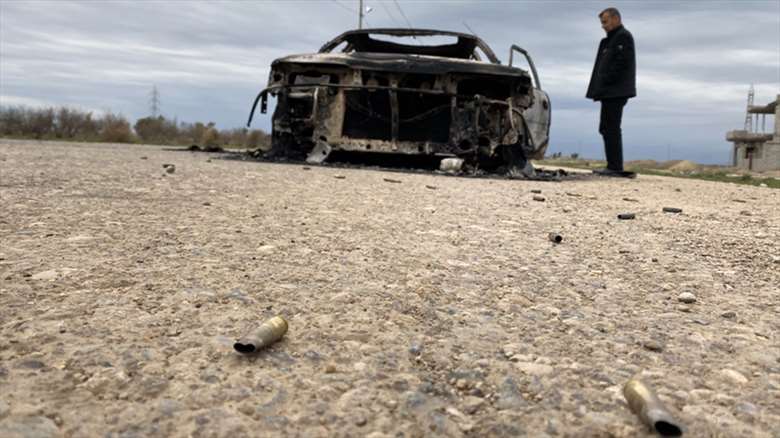Baghdad military officials to visit Erbil to discuss joint security coordination against ISIS

ERBIL (Kurdistan 24) – A military delegation from the Iraqi government in Baghdad is set to visit Erbil to discuss cooperation between the national army and the Kurdistan Region's Peshmerga forces in fighting Islamic State remnants amid recently escalated attacks that are in part blamed on security gaps in areas between those more effectively secured by either federal and regional forces.
“The delegation will be headed by Lieutenant General Abdul-Amir Yarallah, as he is also the head of the previous joint coordination committee that was established between Erbil and Baghdad to tackle security issues,” said Major General Qaraman Sheikh Kamal, Deputy Commander in Chief of the Peshmerga Ministry.
The Iraqi army and the Peshmerga had previously reached a joint agreement of increasing collaboration but it was never implemented, according to Kurdish officials.
“The efforts to strengthen coordination between Erbil and Baghdad are because both sides agree on the necessity of preventing increased Islamic State movement and activity in the security void between Peshmerga forces and Iraqi security forces, mostly in the disputed territories,” added Kamal.
The major general also explained that last year a committee was established to increase cooperation between the region’s ministry of Peshmerga and the Iraqi Ministry
“This visit will be the continuation of last year’s aim, as five sub-committees were created between both ministries to tackle the issue of the security gaps,” added the major general.
In the early hours of Saturday, members of the so-called Islamic State launched a multi-pronged offensive against positions held by Popular Mobilization Force (PMF) militia units in the central Iraqi province of Salahuddin. The attacks have resulted in at least ten deaths among various Iraqi forces.
Read More: Militiamen killed in massive, multi-pronged ISIS attack in central Iraq
Nasser al-Harki, a Kurdish member of the Baghdad parliament’s Security and Defence Committee, told Kurdistan 24 that a security meeting was held in Baghdad last week, where “all sides” stressed the necessity of joint military coordination with Kurdistan Region to find a radical solution to the present security situation.
The meeting was attended by Deputy Commander of Chief of Baghdad Operations Command Lieutenant General Abdul Amir Yarallah, Director of Military Intelligence Lieutenant General Saad al-Alaq, and leaders of the Operations Command for Kirkuk, Diyala, and Salahuddin provinces, plus several other senior military officials.
According to a statement from the body, Kaabi warned of the danger of inaction as the Islamic State continues to step up its attacks.
The parliamentary official also called for “intensifying operations to track down terrorists,” according to a statement by his media office in which he said that the work of the joint security coordination centers between Baghdad and Erbil should be activated to fill “security gaps and prevent infiltration of terrorists and control the borders” of the federal and regional jurisdictions.
“Da’esh is seeking to organize its ranks and redeploy them again and it is seriously threatening more than one region and more than one province,” he warned.
Top Kurdistan Region officials and Peshmerga commanders have issued repeated warnings to both the Iraqi government and the international community that the Islamic State remains active and capable of reasserting itself to continue its campaign of violence. A “security vacuum,” as KRG officials have described it, has made the disputed areas in Diyala, Salahuddin, and Kirkuk more vulnerable to Islamic State attacks.
The Kurdistan Regional Government (KRG) emphasized on more than one occasion the need to find a unified mechanism between the Peshmerga and the Iraqi army with the backing of the international coalition to ensure stability in the disputed territories.
Editing by John J. Catherine
